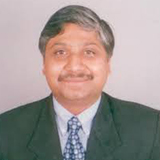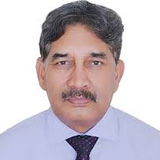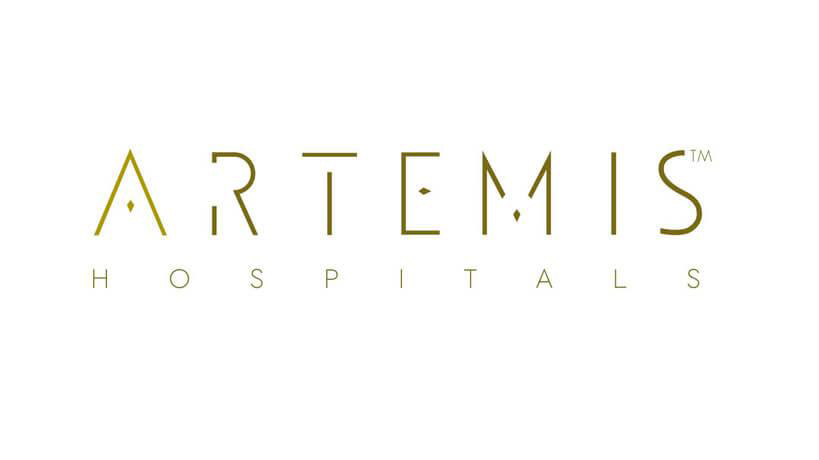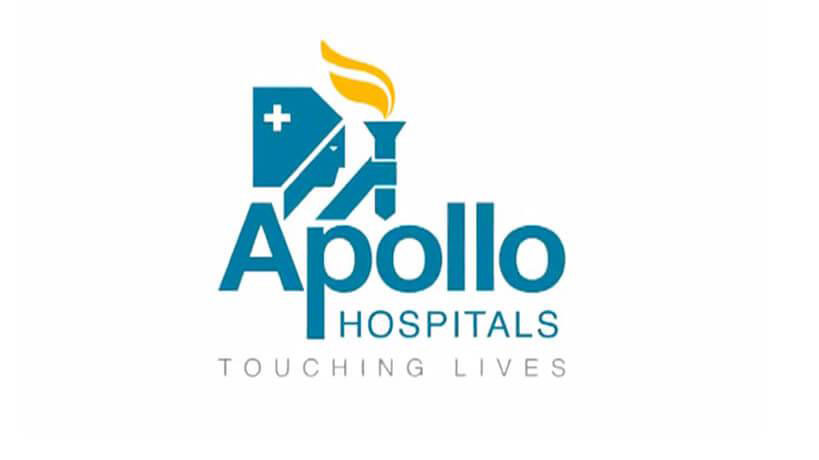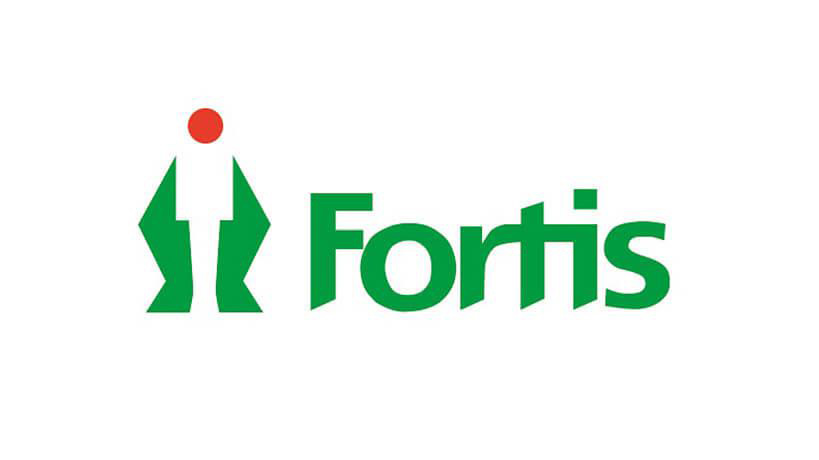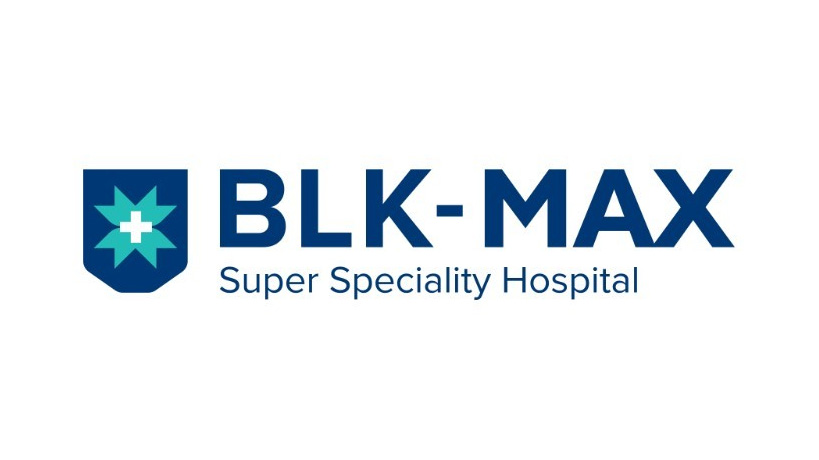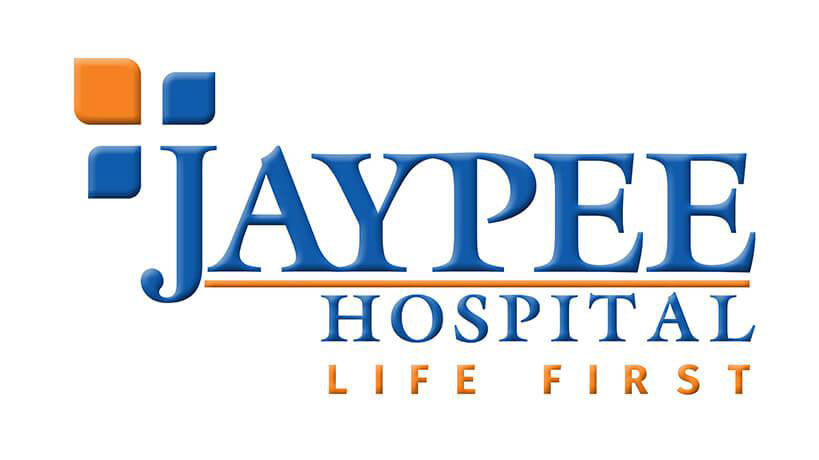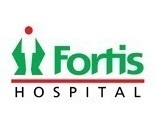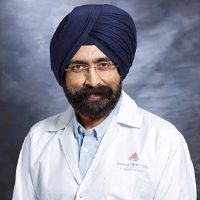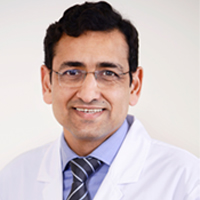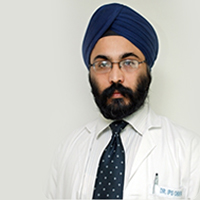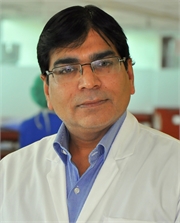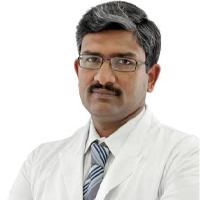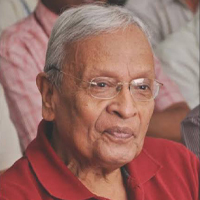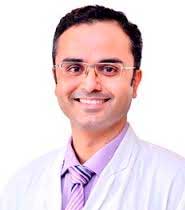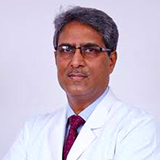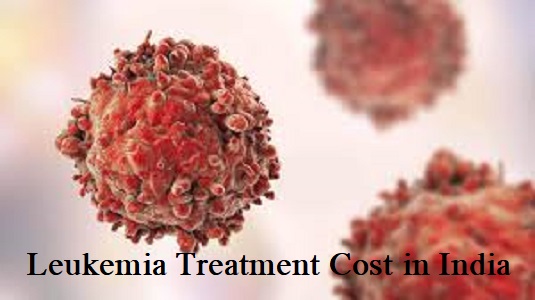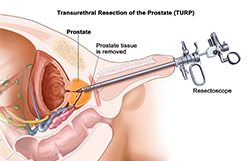
Get Free Treatment Plan From Top Hospital
Attach Medical Report
Transurethral Resection of the Prostate (TURP) – Surgery, Cost, Risks, Complications, and Recovery
Transurethral Resection of the Prostate (TURP) surgery is a procedure for treating urinary problems in men caused by an enlarged prostate as a result of Benign Prostate Hyperplasia. TURP surgery in India is a common procedure, with the average age of patients undergoing TURP typically around 50 years.
Symptoms of an enlarged prostate, such as weak urine flow, difficulty in urinating, and frequent night time urination, can severely impact one’s quality of life. TURP surgery is an effective solution to alleviate these symptoms and restore proper urinary function. TURP surgery in India has a success rate ranging from 80% to 85%. TURP surgery is recommended for men with moderate to severe urinary issues who haven’t responded well to medications.
During a TURP procedure, a specialized tool called a resectoscope is inserted into the prostate through the urethra. This tool is equipped with a camera and electric wire loop, and allows the surgeon to remove excess prostate tissue that blocks the urethra. The obstructive tissue is cut into small pieces, which are carried away by irrigating fluid and expelled from the bladder.
Prostate enlargement is a frequent issue for men, but surgery is only necessary in fewer than 10% of cases. It’s important to know that TURP surgery isn’t a viable treatment for prostate cancer, as it only targets the parts of the prostate near the urethra while leaving most of the gland intact.
Prostate Problems
Men may experience various prostate problems such as inflammation, non-cancerous enlargement (BPH), and prostate cancer. These issues can lead to urinary symptoms, including difficulty starting to urinate, a weak urine stream, frequent urination (especially at night), and occasional leakage. The severity of the problem is not always determined by the size of the prostate. Urinary symptoms are often experienced by one in three men over 50, primarily due to an enlarged prostate, but other causes should also be considered. Seeking medical attention from a doctor is crucial for the proper diagnosis and care.
Benign Prostatic Hyperplasia (BPH)
BPH is a non-cancerous illness in which the prostate gland becomes larger and exerts pressure on the urethra, blocking or restricting the flow of urine from the body. It is common for men over the age of 50 to experience urinary difficulties. Benign Prostate Hyperplasia (BPH) symptoms can be similar to those of prostate cancer. It is recommended that individuals at higher risk, such as those with a family history or of African descent, undergo regular prostate screenings. BPH is prevalent and affects approximately 50% of men over 60 and nearly 90% by age 85. In about half of those experiencing troublesome symptoms, Transurethral Resection of the Prostate (TURP) surgery may be necessary.
Need for a TURP Surgery
Symptom Relief: TURP is used to treat troublesome urinary symptoms caused by BPH. These symptoms include:
- Frequent need to urinate
- Difficulty initiating urination
- Slow and prolonged urination
- Increased nighttime urination
- Intermittent urine flow
- Sensation of incomplete bladder emptying
- Urinary tract infections
Preventing Complications: TURP may also be suggested to prevent or treat issues caused by obstructed urine flow caused by an enlarged prostate, which can result in:
- Repeated urinary tract infections.
- Kidney or bladder dysfunction.
- A urinary urge or inability to urinate at all.
- The formation of bladder stones.
- The presence of blood in the urine.
Failed Medication Treatment: TURP may be a suitable option when medication fails to alleviate BPH symptoms effectively.
Urinary Retention: TURP can help restore proper urinary function in cases of difficulty emptying the bladder or acute urinary retention.
Alternative to Radical Prostatectomy: TURP may be considered to address urinary obstruction caused by prostate cancer when surgical removal of the entire prostate isn’t viable.
Risks Associated with TURP Surgery
- Temporary Urinary Challenges: Temporary trouble urinating after surgery may require a catheter until normal urination is restored.
- Urinary Tract Infections (UTIs): Prolonged catheter use can lead to urinary tract infections (UTIs).
- Retrograde Ejaculation: Retrograde ejaculation, where ejaculate goes into the bladder instead of exiting through the penis, can impact fertility but not sexual pleasure.
- Erectile Dysfunction: Erectile dysfunction is a rare risk after prostate treatments.
- Heavy Bleeding: Heavy bleeding requiring a blood transfusion is very rare, but more likely for individuals with larger prostates.
- Urinary Incontinence: Long-term loss of bladder control is a rare complication.
- TURP Syndrome: Excessive absorption of irrigation fluid used during TURP can result in TURP syndrome, a potentially fatal condition that can be avoided by employing bipolar TURP procedures.
- Need for Re-Treatment: Because of the persistence or return of symptoms, some patients may require additional treatment. TURP can occasionally cause urethral or bladder neck narrowing, necessitating further intervention.
Preparation before TURP Surgery
- Consultation and Informed Consent: Before surgery, healthcare provider will discuss procedure and answer your questions. Follow all instructions given by healthcare provider for safe and successful surgery.
- Medical Evaluation and Tests: Medical history and physical exam will be performed to ensure readiness for surgery.
- Fasting: Fasting for at least 8 hours before surgery is required
- Allergies and Medication List: Allergies, sensitivities, and medications must be reported to healthcare provider.
- Blood-Thinning Medications: Blood-thinning medications and aspirin may need to be stopped before surgery.
- Smoking Cessation: Quit smoking several weeks before surgery if possible.
- Sedation: Sedative may be given to help you relax before surgery.
- Preventive Antibiotics: Antibiotics may be prescribed to prevent urinary tract infections.
Procedure during Transurethral Resection of the Prostate (TURP) Surgery
- IV Line: An intravenous (IV) line is put into your arm or hand to provide fluids and drugs.
- Positioning: You’ll be lying on your back on the operating table, often with your legs in stirrups.
- Anesthesia: Anesthesia is used to induce unconsciousness or spinal anesthesia to ensure that you are pain-free during the procedure. An endotracheal tube attached to a ventilator may help with breathing.
- Examination: The surgeon may introduce an endoscope through the tip of the penis to inspect the urethra and bladder for any abnormalities such as tumors or stones.
- Resection: During a surgical procedure, a resectoscope with a heated wire loop is inserted into the urethra to remove obstructive sections of prostate tissue. Electrical current is used to control bleeding. The removed tissue is then flushed into the bladder and later drained through the urethra.
- Catheter: A soft, flexible catheter is put in your bladder after surgery to help with urine outflow.
TURP usually takes 60 to 90 minutes and is performed under general or spinal anesthesia, with antibiotics used to avoid infection.
After Transurethral Resection of the Prostate (TURP) Surgery
In the Hospital:
- Recovery Room: After surgery, you will be monitored closely in a recovery room for blood pressure, pulse, and breathing. Once you’re alert and stable, you’ll be moved to your hospital room.
- Pain Management: Pain medicine may be provided either by a nurse or through a device connected to your IV line as needed.
- Fluid Intake: Fluid intake will gradually increase from liquids to solid foods.
- Catheter: A catheter will be placed in your bladder to assist with urine drainage and promote healing. Blood in your urine may be noticed initially but will decrease over time.
At Home:
- Hydration: Drink plenty of fluids to wash out any residual blood or clots in your bladder.
- Activity Restrictions: To minimize bleeding, avoid heavy lifting for many weeks and rest as directed.
- Pain Management: If you experience tenderness or soreness, take medications for pain as prescribed by your doctor.
- Seeking Medical Attention: If you have a fever, difficulty urinating, difficulty controlling your bladder, changes in urine flow, color, or odor, increased blood or clots in your urine, or other concerns, contact your doctor.
A urinary catheter may be left in place temporarily to aid in the healing process. It is common to experience some initial blood in urine, but this typically improves within a few weeks. To prevent constipation, it is important to follow specific dietary recommendations. Your doctor may need to adjust certain medications, such as blood-thinners. It is advised to avoid strenuous activities and sexual intercourse until given clearance by your doctor.
Treatments other than TURP
Alternative treatments are appropriate for men who have very big prostates, are too old for TURP, or are using blood-thinning medication such as warfarin. Alternative treatments for prostate enlargement include:
- Holmium Laser Enucleation of the Prostate (HoLEP): HoLEP uses a laser to remove excess prostate tissue and has a lower risk of complications than TURP.
- Transurethral Laser Resection or Vaporization: Transurethral Laser Resection or Vaporization involves inserting a cystoscope with a laser into the urethra to burn away prostate tissue.
- Prostatic Urethral Lift (PUL) Implants: PUL Implants are inserted to prevent an enlarged prostate from obstructing the urethra.
Success Rate of Transurethral Resection of the Prostate (TURP) Surgery
The Transurethral Resection of the Prostate (TURP) surgery has an 85% to 90% success rate. In fact, it is very helpful in reducing obstructive voiding symptoms and improving urinary flow rates. Patients with an enlarged prostate may see a considerable reduction in symptoms such as difficulty in urinating and decreased urine flow.
Transurethral Resection of the Prostate (TURP) Surgery Cost in India
TURP surgery in India costs between $2400 to $4800 depending on various factors, such as the procedure, technology, severity of the condition, location, pre- and aftercare services, and included amenities. India is known for its affordable and high-quality medical care, attracting patients from all over the world. Despite additional expenses, the overall cost of TURP surgery in India is significantly lower than other medical destinations.
Best Hospitals for Transurethral Resection of the Prostate (TURP) Surgery in India
India is renowned for its exceptional medical care and cutting-edge technology, making it a preferred destination for individuals seeking Transurethral Resection of the Prostate (TURP) surgery. The country boasts a range of hospitals that specialize in this procedure, providing patients with top-tier treatment and services. These best hospitals for Transurethral Resection of the Prostate (TURP) Surgery in India are staffed with experienced urologists and offer exceptional patient care, ensuring that patients receive the best possible medical care for their condition.
- BLK Super Speciality Hospital, Delhi
- Fortis Memorial Research Institute (FMRI), Delhi-NCR
- Indraprastha Apollo Hospital, Delhi
- Max Super Speciality Hospital, Saket, Delhi
- Apollo Hospitals, Greams Road, Chennai
- Gleneagles Global Hospital, Perumbakkam, Chennai
- Fortis Hospital, Mumbai
- Kokilaben Dhirubhai Ambani Hospital, Mumbai
- Lilavati Hospital, Mumbai
- Fortis Anandapur Hospital, Kolkata
Top Doctors for Transurethral Resection of the Prostate (TURP) Surgery in India
India has top doctors who are experts in urology and committed to providing excellent patient care for Transurethral Resection of the Prostate (TURP) surgery. These top doctors for Transurethral Resection of the Prostate (TURP) Surgery in India have extensive experience and use the latest medical technology and techniques. They work with leading hospitals and medical centers, contributing to India’s reputation as a sought-after destination for world-class healthcare services. Patients considering TURP surgery in India can trust these top doctors to effectively address their urological concerns with proficiency and dedication.
- Prof. Anant Kumar – Max Super Specialty Hospital Saket
- Ashish Sabharwal – Indraprastha Apollo Hospital, New Delhi
- Deepak Dubey – Manipal Hospital, Bangalore
- Deepak Bolbandi – Apollo Hospital, Bangalore
- Rajesh Ahlawat – Medanta – The Medicity, Gurgaon
- Ashish Sabharwal – Indraprastha Apollo Hospitals

Top TURP Surgeons in India

Best PCNL Surgery Hospitals in India
Book An Appointment for Transurethral Resection Prostate TURP Surgery in India

Get Free Treatment Plan From Top Hospital
Attach Medical Report

Cost of PCNL Surgery in India

Success Rate of PCNL Surgery in India
Contact Form
Attach Medical Report
FAQs (FAQs (Frequently Asked Questions))

What is TURP Surgery?
This refers to transurethral resection of the prostate gland. In the procedure, damaged parts of the prostate gland are removed surgically through the penis by using an instrument known as a resectoscope.
What is robotic TURP Surgery?
In this procedure, surgery will be performed through robotic-assisted laparoscopic prostatectomy. This is a minimally invasive surgical treatment to remove the prostate gland. This surgical procedure has two types: a simple version, used for benign prostatic hypertrophy (when the prostate gland is enlarged), and a radical version, used to treat prostate cancer.
What are the types of TURP Surgery?
There are two types of TURP surgery.
Monopolar TURP: This is a conventional TURP method that helps remove tissue with the help of a wire loop with an electrical current. The current will flow in one direction through a resectoscope to remove the tissues.
Bipolar TURP: This technique involves using bipolar current to remove tissues.
How much time will it take for TURP Surgery in India?
This TURP surgery is completed in around 1-2 hours. Surgeons performed this surgery under general anesthesia.
Who can get TURP Surgery in India?
The TURP procedure is highly recommended for patients diagnosed with an enlarged prostate gland or benign prostate hyperplasia. This surgery is also recommended to treat urinary problems due to an enlarged prostate gland.
What are the precautions after TURP Surgery in India?
Doctors may recommend drinking plenty of water and a stool softener. This helps in easy bowel and urine passing. Additionally, doctors may suggest avoiding heavy exercise and rigorous activities. Sexual intercourse must be avoided for weeks or until the doctor advises.
What is the TURP Surgery success rate in India?
The TURP success rate in India is around 80-85%. However, the success rate may depend on the severity of the prostate gland and the stage of prostate gland cancer.
What is the TURP Surgery cost in India?
The average TURP surgery cost in India ranges from INR 1, 50,000 to 2, 50,000. Charges for surgery may vary from hospital to hospital or the facility provided.
What is robotic surgery cost in India?
The average robotic surgery cost in India ranges between INR 1 80 000 to INR 5 00 000.
What are the top 10 best TURP Surgery hospitals in India?
The top 10 best TURP surgery hospitals in India are as follows:
- Kokilaben Dhirubhai Ambani Hospital, Mumbai
- Fortis Memorial Research Institute, Gurugram
- Fortis Hospital, Mulund, Mumbai
- Adyar Cancer Institute, Chennai
- Kidwai Hospital, Bangalore
- Apollo Hospital, Chennai
- Tata Memorial Hospital, Mumbai
- Apollo Health City, Hyderabad
- Saifee Hospital, Mumbai
- Max Super Specialty Hospital, Delhi
What are the top 10 best TURP Surgery surgeons in India?
The top 10 best TURP surgery surgeons in India are as follows:
- Dr. Shalabh Aggarwal, Urologist, MBBS, DNB (Urology)
- Dr. Rajiv Yadav, Uro-Oncologist And Robotic Surgeon
- Dr. Anant Kumar, Urologist, M.S. (General Surgery)
- Dr. Vikas Jain, Urologist and Renal Transplant Surgeon
- Dr. Vineet Malhotra, Urologist, Urology Surgeon
- Dr. Feroz Amir Zafar, Urologist
- Dr. Yajuvender Pratap Singh Rana, Urologist
- Dr. Rakesh Khera, Urologist
- Dr. Vjay Kher (Urologist)
- Dr. Shyam Bihari Bansal, Urologist
How can I apply or get or book an appointment for TURP surgery in India?
Visit our official website, alafiyameditour.com, to book an appointment for TURP surgery in India. We help you connect with the best medical facility hospitals for appropriate treatment. Moreover, you can get 24/7 nights of free medical opinions from certified healthcare experts from the website.
Top Doctors & Surgeons in India
Why Choose Us

Personalized Care
24x7 Supports
Top NABH and JCI accredited Hospitals
Free Cost Estimation & Medical Opinion from Specialist
Get Free Tele/Video Consultation
Visa and Traveling Assistance
Post-surgery with Assistance in Follow-ups

